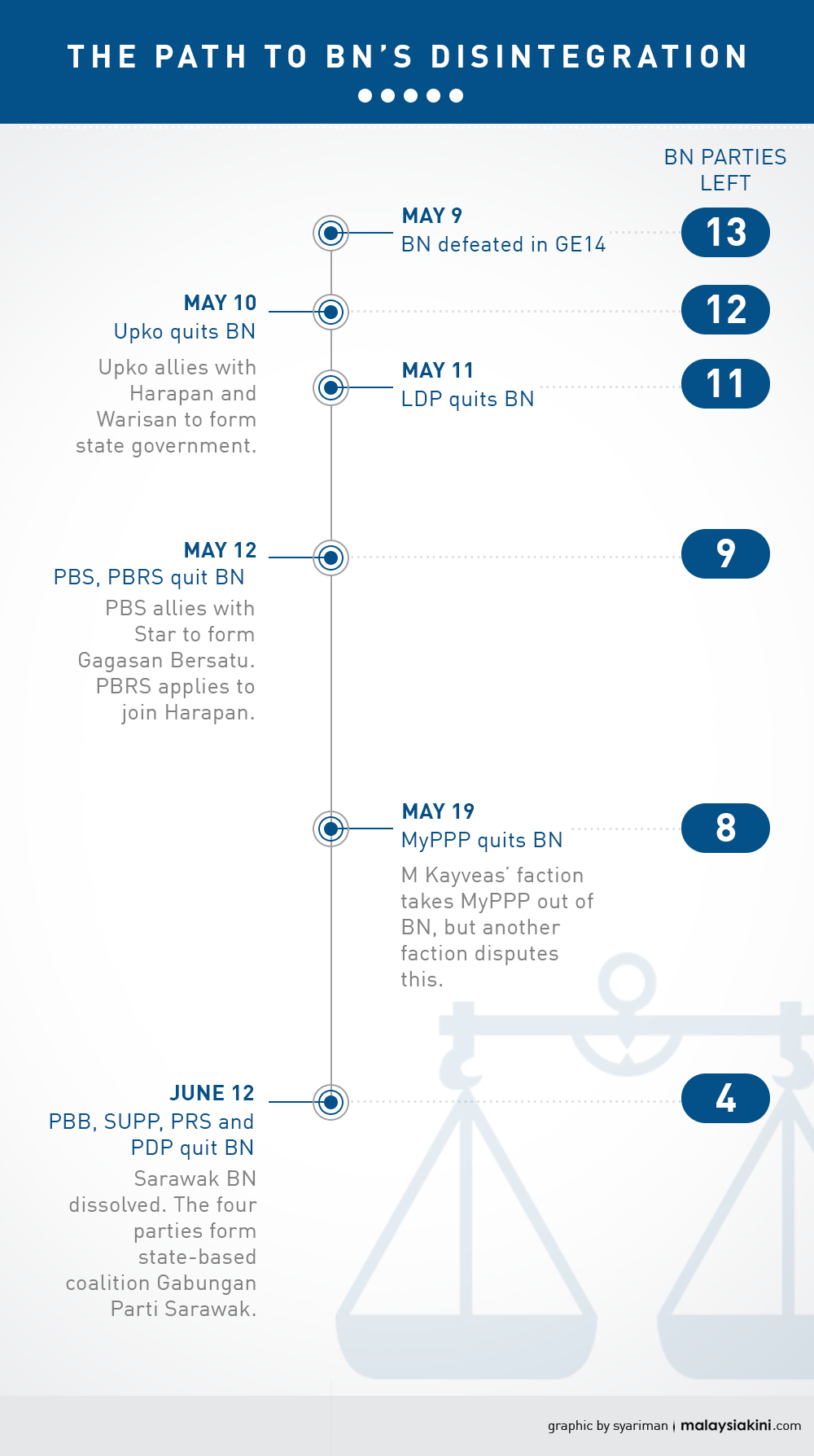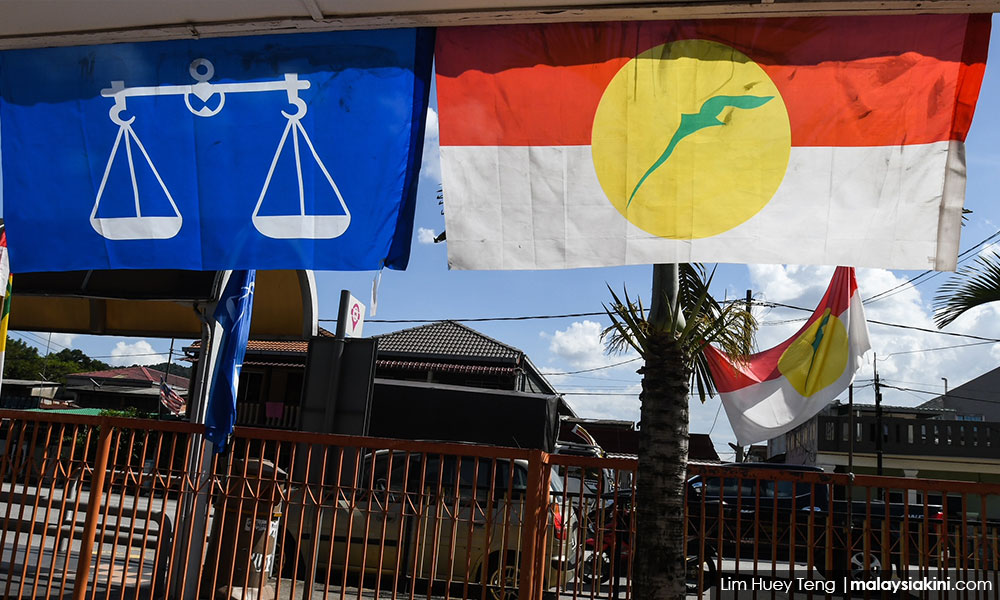Abdul Razak had served as Malaysia’s second prime minister from 1970 to 1976 and passed away while in office. His remains were interred in Makam Pahlawan.
He was known as Malaysia’s Father of Development for his legacy in uplifting the poor through various policies and means including Felda and the introduction of the New Economic Policy (NEP).
Abdul Razak was also renowned for his frugality, unlike daughter-in-law Datin Seri Rosmah Mansor who is renowned for owning hundreds of Hermes Birkin handbags.
THE DISINTEGRATION OF BN – FROM 13 PARTIES TO FOUR
The once-exalted Barisan Nasional (BN) entered the 14th general election with 13 parties but in just a month since its disastrous defeat on May 9, the coalition has disintegrated and is left with only four parties with another in dispute.
Founded in 1973, BN was an initiative by the third prime minister Abdul Razak Hussein to bring both ruling and opposition parties together following a painful period for the country – the 1969 riots.
However, BN has today unravelled at the hands of his son and sixth prime minister Najib Abdul Razak who insisted on leading the coalition despite being plagued by the 1MDB scandal, a multi-billion dollar corruption behemoth described as “kleptocracy at its worst”.
On May 9 this year, BN – successor to the Alliance – lost power for the first time in 61 years since independence in 1957.
This article provides a timeline of the disintegration of the BN and how its former partners are re-aligning. It also looks at the remaining parties within BN.

Sabah BN
Going into the 14th general election, Sabah BN comprised Umno and state-based parties PBS, PBRS, Upko and LDP.
Immediately after BN’s defeat at both the state and federal level in Sabah, Upko was the first to announce its exit from BN.
The party then joined forces with the opposition Pakatan Harapan and Warisan, giving them the needed majority to form the new Sabah state government.
This was followed by LDP, PBS and PBRS’ exiting from Sabah BN, effectively leaving Umno as the only major component of the coalition in Sabah.
A large group of Sabah Umno state assemblypersons also quit the party to join PBS in a bid to develop a more “local image”.
PBS, meanwhile, allied itself with Star, another opposition party, to form Gagasan Bersatu.
All this took place within the first week of BN’s defeat.
What is left of Sabah BN is a weakened Umno and a few peninsular-based parties.
MCA and Gerakan have a presence in Sabah but they were never considered as core members of Sabah BN.
Sarawak BN
In contrast to Sabah, Sarawak BN had an orderly exit from the coalition with all of its state components remaining intact.
Under the leadership of Sarawak chief minister Abang Johari Openg, PBB, SUPP, PRS and PDP announced their exit from the coalition today.
The four parties announced that they will now form a state-based coalition named Gabungan Parti Sabah (GPS).
Johari said the coalition will work with the Pakatan Harapan federal government but will form its own bloc and remain on the opposition side in Parliament.
BN in Peninsular Malaysia

The only parties left in BN are Umno, MCA, MIC and Gerakan.
A power struggle ensued in MyPPP with its president M Kayveas announcing on May 19 that the party was exiting BN.
However, his other supreme council members disputed this, leaving MyPPP’s true status with BN in limbo.
While MCA, MIC and Gerakan remain in BN, for the time being, they have indicated that they will reviewtheir position in the coalition as part of a post-general election reform.
Umno – the anchor of BN – now has few friends to count among its ranks, and may need to look for new allies. – MKINI
MALAY MAIL / MKINI




No comments:
Post a Comment
Note: Only a member of this blog may post a comment.